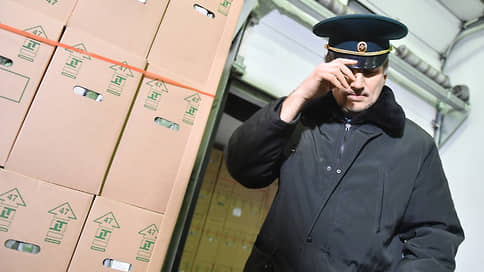FCS covers chips – Kommersant
[ad_1]

Kommersant learned that the Federal Customs Service, together with the Ministry of Digital Development, at the request of associations of manufacturers of computer equipment and electronics, is discussing the possibility of restricting business access to customs data. The fact is that information about shipments and deliveries of equipment to the Russian Federation gets into foreign media, which threatens domestic and foreign companies that continue to cooperate with Russia with sanctions. To solve the problem, it is proposed to encrypt customs data. Experts fear that this could cause problems for distributors with the tax authorities, who use customs data to assess the cost of products, but the government says there are no such risks.
Kommersant’s sources in the government and in the electronics distribution market said that on April 20, the Federal Customs Service held a meeting with the participation of the Ministry of Digital Development, large electronics distributors, and specialized associations. It discussed the problem of data leakage of primary customs statistics to foreign media. In particular, in mid-February, the American edition The Wall Street Journal, referring to the data of the Federal Customs Service, reported that a year after the imposition of sanctions, American Cisco devices still arrive in the Russian Federation. Earlier, the publication also reported, citing FCS data, that Chinese companies continue to supply technological equipment to Russia.
After the outbreak of hostilities in Ukraine, the FCS suspended the publication of data on exports and imports in order to avoid “incorrect estimates, speculations and inconsistencies.” (see “Kommersant” dated April 21, 2022). However, in February 2023, the FCS began to publish the value of imports and exports of the Russian Federation for 2022 (see “Kommersant” dated March 14).
Now distributors of computer technology and electronics have access to primary customs data, receiving it directly from the department. We are talking about electronic copies of declarations for goods that are generated in the data processing system of the unified automated information system of customs authorities in the process of basic customs clearance and control.
Such information can be distributed among distributor partners, so it is difficult to avoid leaks, an interlocutor familiar with the details of the meeting explains to Kommersant: “Companies use it, among other things, to set prices and plan purchases.” It is on the basis of primary customs data that statistics are formed, he explains: “But it is access to primary data that is critical, since they allow us to identify the legal entities of senders and recipients of goods, which threatens with new sanctions and threatens parallel imports.”
As part of the meeting, says another interlocutor familiar with its details, it was proposed to place the customs declarations of a number of IT importers in a closed segment of the database.
“The second security measure that can be applied is data encryption, including by commodity codes,” continues the Kommersant source. The Ministry of Digital Development and the Federal Customs Service did not respond to inquiries. Major Russian IT distributors, as well as the Association of Computer and Information Technology Enterprises, declined to comment.
Oleg Izumrudov, Executive Director of the Consortium of Russian Developers of Data Storage Systems, said that foreign companies that continue to cooperate with Russian partners were primarily asked to restrict access to data. According to him, of course, it is important for companies to receive FCS data, but they understand that it is better to temporarily close them to protect against possible sanctions. The Association of Electronics Developers and Manufacturers proposed to limit the distribution of FCS data back in April 2022, its CEO Ivan Pokrovsky says: “First of all, this concerns the supply of electronics and components that are used in various sectors, including defense.”
The FCS has the option of transferring certain codes to closed mode, Mr. Pokrovsky, however, customs data is used by the Federal Tax Service (FTS) and other departments to assess the cost and origin of products.
“When these FCS data are closed, companies may face the risk of claims from these regulators,” Mr. Pokrovsky believes. But Kommersant’s interlocutor in the government claims that such problems are not expected, since the tax authorities will be able to receive the necessary data. The Federal Tax Service did not answer “Kommersant”.
[ad_2]
Source link





